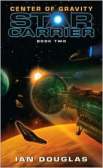 The story is set in the second half of the 23rd Century. Mankind has colonized Mars and the Moon, and has expanded industrial concerns into Trans-Neptunian space. Earth, long ravaged by climate change and pollution, is slowly recovering. In most of human society, the “Mechanism”, a sort  of benevolent big brother, and compulsory neural implants have practically eradicated violence and crime. Robots and proxies (advanced telepresence), are everywhere. The Akinya family from Tanzania has been instrumental in the expansion into space, or more accurately the family matriarch, Eunice Akinya, a legendary deep space explorer and pioneer industrialist. As the book starts, Eunice has just died. For the last sixty of her one hundred and sixty years, she has been living in enigmatic isolation in the Winter Palace, a habitat orbiting the Moon. As the family gathers to scatter her ashes, a loose end appears. A previously unknown safe deposit rental on the Moon. Geoffrey Akinya, one of Eunice’s grandchildren, is reluctantly roped into retrieving the contents. What he finds will start him and his sister Sunday off on a treasure hunt to the remote wilderness of the Moon, then to Mars, and beyond.
The story is set in the second half of the 23rd Century. Mankind has colonized Mars and the Moon, and has expanded industrial concerns into Trans-Neptunian space. Earth, long ravaged by climate change and pollution, is slowly recovering. In most of human society, the “Mechanism”, a sort  of benevolent big brother, and compulsory neural implants have practically eradicated violence and crime. Robots and proxies (advanced telepresence), are everywhere. The Akinya family from Tanzania has been instrumental in the expansion into space, or more accurately the family matriarch, Eunice Akinya, a legendary deep space explorer and pioneer industrialist. As the book starts, Eunice has just died. For the last sixty of her one hundred and sixty years, she has been living in enigmatic isolation in the Winter Palace, a habitat orbiting the Moon. As the family gathers to scatter her ashes, a loose end appears. A previously unknown safe deposit rental on the Moon. Geoffrey Akinya, one of Eunice’s grandchildren, is reluctantly roped into retrieving the contents. What he finds will start him and his sister Sunday off on a treasure hunt to the remote wilderness of the Moon, then to Mars, and beyond.
The concept of making the African continent prominent is an interesting one. Today, the common western view of Africa is that of a lost continent continually ravaged by poverty, war and disease. In this book, Africa has become a center of high civilization, and Swahili is one of the lingua francas of humanity. The setting is intricately designed, with robots, proxies and neural interfaces prevalent. This brings about some interesting aspects of the “what is consciousness” discussion, as advanced autonomous machine intelligences are one of the potential futures envisaged. On the other hand, the group known as the “Pans” sees evolution of humans themselves as the way forward, in order to avoid humans becoming sessile with proxies doing the exploration and the discovery.
The story itself is not the strongest part of this book. It is adequate enough though, and the characters follow its meanderings more as a way to explore the nature of humanity and consciousness than to actually get to the payoff at the end.
This is a long book, and while I don’t mind per se, it is rather ponderous. Mr. Reynolds writes with a smooth and easily read style but I still think the book could have been shorter. The protagonist Geoffrey is rather interesting; initially an unwilling actor in events who is slowly drawn in until he drives them.

 In the second and final part of the tale of Abel Dashian on the planet Duisberg, things come to a head as Zentrum manipulates the Redland barbarians into invading The Land. Center and Raj have other plans.
In the second and final part of the tale of Abel Dashian on the planet Duisberg, things come to a head as Zentrum manipulates the Redland barbarians into invading The Land. Center and Raj have other plans.


























